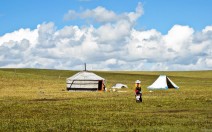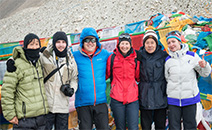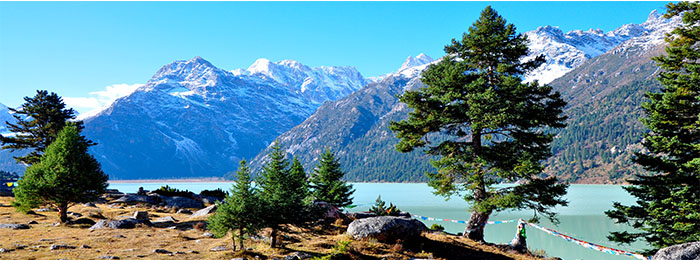What is Eco Travel and Responsible Tourism?
Responsible Tourism is tourism that conserves the environment and improves the well-being of local people. The pillars of responsible tourism are the same as those of sustainable tourism and ecotourism — environmental integrity, social justice, and maximizing local economic benefit. Eco travel and responsible tourism are not only ways of traveling – they are about making a difference.
Why should I care about Eco Travel and Responsible Tourism?
Do you care about the places and people you visit?
Traveling responsibly provides a more enjoyable experience for tourists through building more meaningful connections with local people and granting them a greater understanding of local cultural, social and environmental issues. It enhances the well-being of host communities and encourages respect between tourists and hosts. Practicing responsible tourism makes positive contributions to the conservation of natural and cultural heritage and helps improve a place for all who visit it after you.
What does it mean to practice Eco Travel and Responsible Tourism in Tibet?
Here are some helpful guidelines for ecotourists and responsible travelers to Tibet:
Choose a local Tibetan travel agency
There are many agencies that offer Tibet tours. Try to choose an agency based on the Tibetan plateau (in Xining, Chengdu, or Lhasa) that is owned, managed, and staffed by Tibetans. These agencies have far more expertise in arranging Tibet tours than do Chinese tour operators based in other regions of the country. In addition, if you use a Tibetan-owned travel agency, you can be sure that more of your tourist dollars are going to be put into the local Tibetan economy.
Patronize local Tibetan businesses
Tourism makes up a large part of the Tibetan economy. If you want to see your tourist dollars go to Tibetans, try and use as many Tibetan owned hotels, shops and restaurants as possible. Through strengthening the local economy, you will be improving the lives of Tibetans and helping preserve their cultural heritage.
Hire local Tibetan guides and drivers
If you want to better understand Tibet, travel with locals, who can provide expert advice on all the best locations and inform you on local perspectives and opinions. Chinese guides in Tibet invariably know very little about the local culture, religion, and language that make Tibet such a beautiful place. Having a local guide will give you a more meaningful connection to the place you are visiting. At the end of your trip, if you believe your guide and driver did a good job, tip them.
Respect Tibetan cultural and religious customs
When entering monasteries and temples, dress appropriately. Take off your hat (and shoes if required) and wear long pants instead of shorts. Ask first before taking pictures — many larger monasteries require that individuals pay a small fee to photograph the inside of temples and prayer halls. Do not step on or over any religious items or pictures, and if seated, do not point your feet towards religious images or monks and nuns. Be aware that some chapels forbid women to enter. If you’re a woman, do not touch a monk; and if you are a man, do not touch a nun. Walk counter-clockwise in and around Buddhist temples, but walk clockwise in and around Bon temples. Some travelers have reported that wearing a Buddhist rosary puts Tibetans at greater ease by showing them that they respect the local culture and religion.
Follow leave-no-trace principles while trekking
While trekking, ask permission from local nomads if you plan to camp near them (so that they can call off their ferocious dogs). Make sure you do site cleanups before you leave an area and pack out all trash. Use environmentally friendly soaps and detergents. Carry reusable tableware. Don’t go to the bathroom near water sources. Stay on existing paths and don’t make new ones to avoid contributing to soil erosion.
Abide by local laws
All travelers in the Tibet Autonomous Region require permits that list the dates of their stay and the locations they plan to visit. Do not stray from this itinerary without express permission from your travel agency. If you overstay your permit or venture into an off-limits place, the consequences for the travel agency that arranged your tour will be severe. While tourists may only be fined 300-500Y, travel agencies can be fined up to 50,000Y and might be shut down. While you might not like or agree with the travel policies in Tibet, keep in mind that your actions affect local Tibetans and might put them out of a job.
Avoid political discussions while traveling in Tibet. While you may not get in trouble, you could get the locals into serious trouble.
Don’t pay for pictures or hand out medicine.
Tibet is a poor place, and you may be tempted to hand out money, candy, or medicine to those you meet along the way. However, these are not good tourist practices. If you want to help local Tibetans, donate directly to orphanages or service projects in the area.
If someone does not want to have their picture taken, respect that right. In addition, do not pay anyone for their photograph. If you tell someone that you are going to send them their photo, then follow up on it. You can send your pictures to your travel agency or guide. Guides frequently return to the same places and can take the photos to the places you visited.
The one place it is fitting to leave small bills is at monasteries. Many monasteries are supported by the alms that pilgrims offer on the altars. In addition, feel free to give small change to groups of chanting monks and nuns as well as pilgrims that you see prostrating in front of temples or on longer kora routes. The monks and nuns sing prayers to raise money for their temples and the pilgrims have traveled long distances and depend on the support of others to complete their journeys. If you’re not sure who they are, just ask your guide. You might see locals donating to them as well.
Make responsible choices when traveling to Tibet. Discovering ways of connecting with locals and making a difference will greatly improve the quality of your trip.
SnowLion Tours is a Tibetan-owned travel company that provides eco-friendly, high-quality travel services that help benefit local Tibetan communities.







